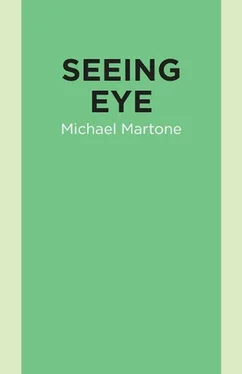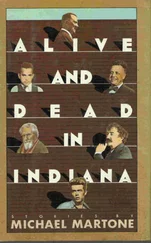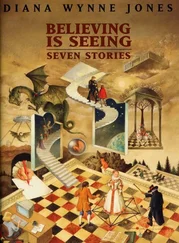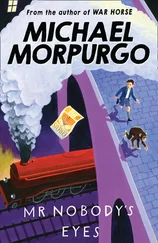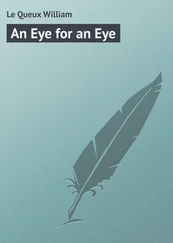Michael Martone - Seeing Eye
Здесь есть возможность читать онлайн «Michael Martone - Seeing Eye» весь текст электронной книги совершенно бесплатно (целиком полную версию без сокращений). В некоторых случаях можно слушать аудио, скачать через торрент в формате fb2 и присутствует краткое содержание. Год выпуска: 2013, Издательство: Dzanc Books, Жанр: Современная проза, на английском языке. Описание произведения, (предисловие) а так же отзывы посетителей доступны на портале библиотеки ЛибКат.
- Название:Seeing Eye
- Автор:
- Издательство:Dzanc Books
- Жанр:
- Год:2013
- ISBN:нет данных
- Рейтинг книги:5 / 5. Голосов: 1
-
Избранное:Добавить в избранное
- Отзывы:
-
Ваша оценка:
- 100
- 1
- 2
- 3
- 4
- 5
Seeing Eye: краткое содержание, описание и аннотация
Предлагаем к чтению аннотацию, описание, краткое содержание или предисловие (зависит от того, что написал сам автор книги «Seeing Eye»). Если вы не нашли необходимую информацию о книге — напишите в комментариях, мы постараемся отыскать её.
Seeing Eye — читать онлайн бесплатно полную книгу (весь текст) целиком
Ниже представлен текст книги, разбитый по страницам. Система сохранения места последней прочитанной страницы, позволяет с удобством читать онлайн бесплатно книгу «Seeing Eye», без необходимости каждый раз заново искать на чём Вы остановились. Поставьте закладку, и сможете в любой момент перейти на страницу, на которой закончили чтение.
Интервал:
Закладка:
Your mother doesn’t remember this. We lived then with your grandmother, who was failing, and once you all had to hide behind the curtains when the landlord came for the rent. I collapsed those weekends after the long walk home from the country. Your mother forgets, forgets how we worried, how we saved everything, and how I told her the alcohol accumulated drop by drop, more than a swallow, past a couple of fingers.
Those nights I slept with her I listened to her breathe. I woke up after midnight, screwed up from the shift I worked. Her breathing catches when she sleeps, not so much a snore as a click back in her throat that sounds like a clock ticking or a leaky faucet. And I figured in every exchange of air we were losing something. We were falling behind. Soon the act of breathing itself wouldn’t be worth a good goddamn. I was so tired. Some nights finally I hoped she wouldn’t be able to persuade herself to try again just settle into a last long sigh. I held my breath those nights so I could hear her, hear if this was it or this one or the next. But then the room would lighten enough for me to see the blankets rise and fall, and I had to leave before you even woke up to make it back to the sanatorium in time.
I told you how we went to a party after the repeal, how things were looking up. The alcohol we skimmed was still illegal but in a different way now. The party was out in Huntington. We were going to drink it all, toast the end of our bootlegging. Ed Patton, who’s passed away now, and I took the first belt. We were lucky. We had eaten a lot of potato salad, ham sandwiches, and deviled eggs while we mixed together the hooch in a washtub, cutting it with lime rickey. Somebody had replaced the grain alcohol we stole with the rubbing kind, and both of us were out cold before we knew it. I’ve told you this. I came to under the kitchen sink. Back then there were three pipes — one for the hot, one for the cold, and one for something I can’t remember. I woke looking up at those bars and knew I was in jail.
“Ed,” I had said to him after taking the first swallow, “this is sure hard to get down.” It’s the last thing I remember before the pipes. They pumped my stomach and Ed’s too. He froze both his feet later at the Battle of the Bulge and in the hospital then all the doctors asked him if he was related to the general, and he just said, “Hell, no!”
That was my last party and an end to all my drinking. People had come drunk to it, drunk on moonshine rye and smuggled Canadian whiskey. Perry Monet said he could walk a straight line and walked straight over the kitchen table and up and over the back of the davenport and on out the door and into the backyard. Your mother and Marcella Voltz put Forest Norton in the ringer washer and turned it on. He went around and round. I never knew who switched the alcohol. He might have been at the party, already pissed from the real stuff, too scared or stupid to say a word. I’ve been a sober man ever since.
At the sanatorium, one thing I had to do was massage the patients. I remember the chill it left on my hands when I swabbed the rubbing alcohol over someone’s back, the way the skin drew up tight. From then on the vapor always made me a little sick, so I held my breath until I could feel the skin turn rough and warm. A doctor explained it to me once, how a liquid warms to the degree it takes to turn it to air and how it stays at the temperature, even if you add more heat, until the liquid’s all gone.
Not much later, I was walking the alleys for the City Light. Tramps had scrawled these picture messages in chalk on the utility poles. A dishonest man lives here . A circle with an X inside marked a house good for a handout. A jagged line of triangles meant to tell a pitiful story. A bunch of lines was food for chores. You learned to draw the smiling cat you found scribbled on the paving bricks behind our house on Oakland Street. A kindhearted woman, a kindhearted woman lives here. You listened to the men on the back steps while they ate their fried egg sandwiches your mother made for them. And those weekend nights when I was home, you told me their stories, and they were always the same, how they’d heard of work in town, how they had a kid like you at home.
People waited. Once I had to shut off the power to a house on Brandroff Street. The meter was in the basement. I had to go through a bulkhead in the back. In the backyard around a card table were six or seven men all out of work playing euchre or watching the game. They stopped and turned toward me, looked at me standing in a clump of hollyhocks and ashes while the tenant fiddled with the lock on the door. I expected something would happen, for them to run me off. Instead they spent the moment just staring at me, as if I wasn’t worth the effort. The patients too, on the breezeways and porches, shrinking inside their rugs, watched the moon rise and then set. And your mother, back then, sitting with her mother, trying to pry her mouth open with a spoonful of broth.
Your mother sleeps all the time now, even in the chair beside the window. In the park, a yellow tractor comes each day to drag the field smooth again with an old piece of chain-link fence. The cloud of dust it raises drifts this way. I try to remember when it started happening, how we got to here. That ratchet in her throat cranks her head down, her chin to her chest.
“Blanche,” I say, “Blanche, wake up.”
She starts. “Wake up,” she says. “Wake up.”
And I try to think of something more to say.
Miners
Going east, I cross the Ohio by a bridge that empties on the west side, smack into a mountain face tunneled through to Wheeling. Set back from the highway on the old roadbeds are the miners’ houses. Mountains are at their back doors. The highway cuts through the mountains, and on the sheer faces of the cliffs on both sides, I see where they’ve bored and set the charges like a pencil split in two and the lead removed.
I think about the products of coal. The stockings you wear. The records you play. The aspirin you take. The pencil you write with. These are mine. What would we do without carbon?
The face of the land is changing. I am going east so I can write to you.
The hillsides are quarries mining men. The men are going home, where they will discover that all the waters in Shakespeare will not clean them. This life has gotten under their skins. They make love in smudges.
I am going further east, where men are inside of things, where they own things inside and out.
I am writing this with a pencil painted yellow and printed with a silhouette of a woman with no arms.
I wish I were a miner so that when you turned your back to me and the face of the land changed, before I would go back underground, I would reach out and write with my black finger some graphite text on the places you could not reach.
“You,” it would say, “are mine.”
The War of Northern Aggression
Sometimes we are mistaken for Nazis. We are not Nazis. It is our blond hair. It is our white skins. The names are not Latin. Johnston, Buell, Early, and Jackson. We speak English to each other when we wish not to be understood. We marry our cousins and stay within the walls of our villas. We have been here generations now, but cannot forget the country we have left behind. Our ancestors burned their ships in the harbors. Pilgrims, my friend. But do not call us Yankees. Never call us Yankees.
We have traveled to Bogotá from our homes in the mountains to see the North American Vice Presidents when they make their state visits. We are curious about such men. We watch as the campesinos pelt the limousines with eggs and paving stones from the plazas. I myself liked Señor Nixon, his face the color of newsprint. How he smiled and waved even as the masses swamped his sweating blue Cadillac.
Читать дальшеИнтервал:
Закладка:
Похожие книги на «Seeing Eye»
Представляем Вашему вниманию похожие книги на «Seeing Eye» списком для выбора. Мы отобрали схожую по названию и смыслу литературу в надежде предоставить читателям больше вариантов отыскать новые, интересные, ещё непрочитанные произведения.
Обсуждение, отзывы о книге «Seeing Eye» и просто собственные мнения читателей. Оставьте ваши комментарии, напишите, что Вы думаете о произведении, его смысле или главных героях. Укажите что конкретно понравилось, а что нет, и почему Вы так считаете.
